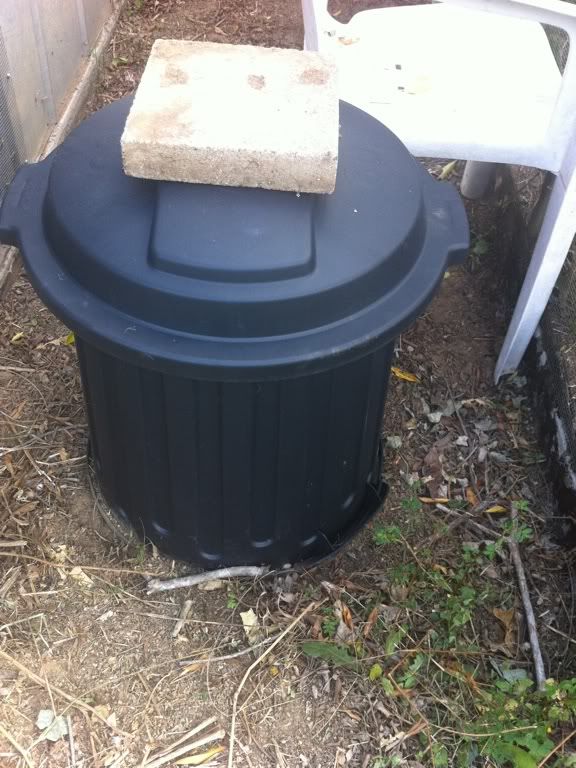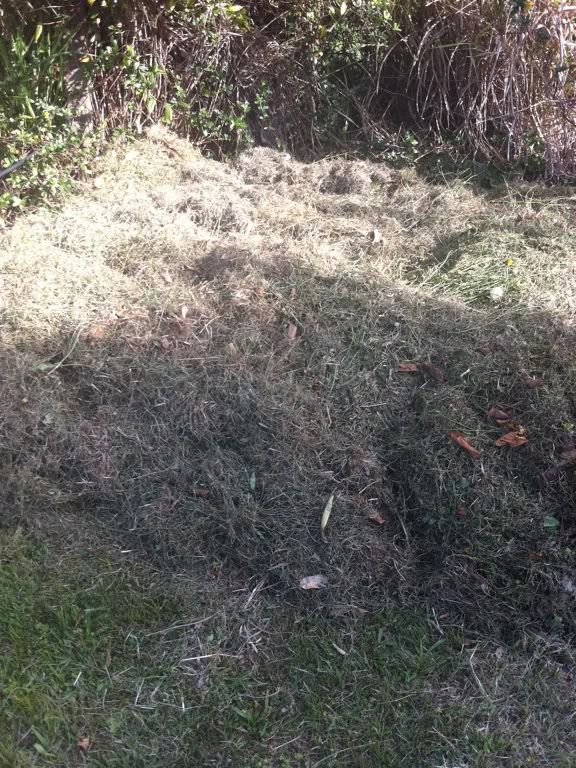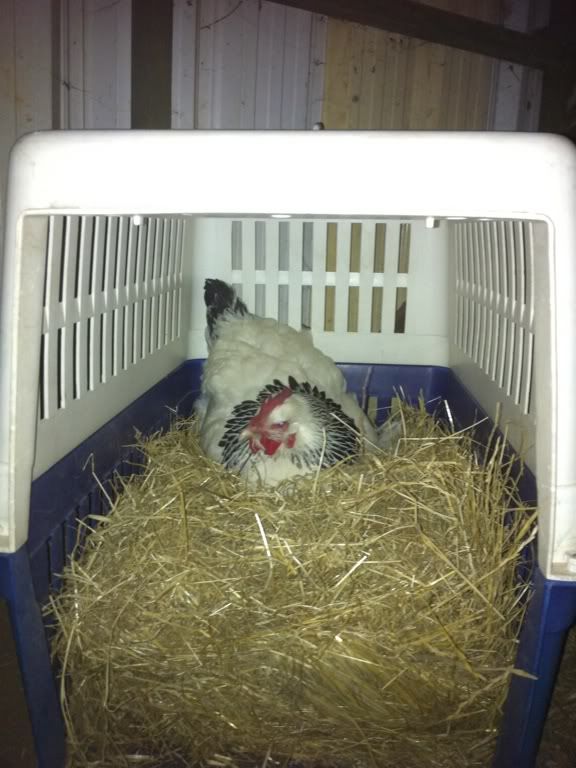 |
| Python approx 1.5m captured in
our chicken coop |
"May you live in interesting
times."
The above
is purported to be an ancient Chinese curse or proverb, and it has long been a
favourite of mine, but recently, what with the soft-shell eggs problem, and the
constant rain which is turning my garden into a mosquito and toad infested
quagmire, I am beginning to understand why this simple phrase might be
interpreted as a curse, regardless of where it originated.
According
to the weather man a few nights ago, it is now officially Autumn in Australia.
We should be seeing cooler weather (which we are) and the wet season should be
coming to an end (which it's not!). We should be having cool, dry days but it
has now been raining for three days without letting up and there are reports of
road closures around our district due to flooding.
Added to
that, last night when I put the chickens into their coops (they'd been out for
forage while the rain was a little lighter), I noticed that the laying hens
didn't go up to roost immediately. They spent a lot of time pecking and
scratching around in their covered run, keeping to the front end of it. I
didn't think too much of it, deciding they must simply feel like a bit extra to
eat as the rain would have driven bugs and worms deeper into the ground.
I
finished topping up feed hoppers and came down to the house, thoughts of my own
dinner dancing around in my mind. I was getting ready to put dinner on when
Sandra asked:
"What
on earth is going on with your chickens?"
Cocking
my head to one side, I listened (I don't generally hear the chooks because I
have come to tune them out as background noise). Sure enough, there was a
ruckus coming from the direction of the coops. That is abnormal for chickens at
nighttime so I knew something must be wrong. I took the torch (flashlight)
Sandra had already grabbed and waded back out through the puddles and rain to
the hen house.
All of
the layer hens were in the front of their run, cackling, hooting and hollering
at the top of their airsacs while their rooster was huddled in a wheezing heap
in the corner. Nextdoor in the POL pen, the blue Australorp cockerel was
hollering, hooting and swearing up a storm, too while his hens huddled in their
roost making small, distressed cooing noises. Something was definitely amiss.
The blue
cockerel was in danger of injuring himself trying to get through the wire to
the laying pen, so I went to him first. I managed to herd him into the roost
with his ladies after checking that all was well with them, and settled him
down.
Then I
returned to the laying pen, with the blue cockerel calling out warnings to me
from his hiding place all the while.
I went
into the coop with the layers who immediately quieted down once I was on the
scene. Shining my torch around, I slowly edged my way into the coop and shone
the torch onto the roost...
And
bolted with a shout that had every chicken on the property all hollering and
flapping madly as well. I think I made it from the hen house, halfway to the
patio before what I'd seen in the brief flash of the torch registered properly.
I slowed my pace, took a breath and chided myself.
"That's
just a carpet snake, dufus!"
Well, of
course this creature would need to be evicted, and as far as I was concerned
that was not a job for one person. I continued on my way down to the house and
asked Sandra to come and assist with the removal.
We went
back to the hen house, herded the laying hens and their wheezing guardian into
another run and shut them in. Within seconds, hens and rooster had all piled
onto the smaller, more cramped roost in the spare run, clucking and squawking
like elderly tour bus patrons who were served cold tea on a rest stop and were
determined to let 'management' know of their displeasure! "Just as soon
as we've had a good lie down!"
Then
commenced operation snake eviction!
I don't
know if any of my readers have ever tried to catch a snake in a chicken coop
before, but let me tell you, it's no easy feat! Those things are slippery!
Not slimy, though, just really good at avoiding being hooked up with a garden
fork. No matter how Sandra tried to get him off the roost and into a feed sack
we'd brought up there for the purpose, the snake managed to slip, slide and
slither away.
In the
end, I grabbed him by his -- surprisngly muscular -- tail and hung on, trying
to tug him out of the roost. The snake had other ideas. He got his head in
behind a wooden beam and hooked himself up there and we got into a real
tug-o-war! boy he was strong! I was worried about hurting him if I tugged too
much, and Sandra suggested we might need to kill him to get him out of there.
Killing
him was the last thing I wanted to do. Carpet Pythons are non-venomous and are
handy for killing mice and rats around the sheds. Besides which, they are
beautiful creatures and all this fellow wanted was a dry, dark place to coil up
and sleep the rain away.
Deciding
on a path of least resistance, I stepped forward, letting the tension off his
body and the snake lost his grip on the beam and fell onto the soft straw
bedding under the roost. I lost my grip on his tail at the same time and the
chase was on again!
We
managed with much shuffling, squealing (from me) and nervous sniping at each
other, to get him from the coop into the run and finally, out of all patience
with the ordeal I seized him by his tail again and hauled his scaly butt out
into the rain!
Sandra
brought the sack out of the chicken coop and we managed to finally bundle our
captive into it. Now what to do with him?
It was
decided that the best place for a rather war-weary python on such a rainy
Sunday evening was a lovely heated reptilarium at Steve Irwin's Australia
Zoo. The Zoo is, fortunately only a few kilometers from home, so we carted our
sinuous visitor up to the Wildlife Hospital.
I must
have presented quite a sight! Hair on end, dressed in a singlet and shorts (It
was quite muggy yesterday) a pair of thongs (flip flops) on my feet and *blush*
no bra! I made the best of the situation though, hugging myself against the
aircon in the foyer of the hospital and explaining to the somewhat amused
volunteer how we'd "arrested" the python in our chicken coop.
We left
the python safely in their care and came home where I spent the rest of the
evening cringing in embarrassment, not helped at all by Sandra pointing out my
mode of dress!
I called
the wildlife hospital to ask after our erstwhile house guest this morning and
was told that he is fine, and soon to be released back into the wild.
At least
life is never dull around here!
![IMG_2301[1]](https://myfanwe.files.wordpress.com/2012/05/img_23011.jpg?w=300)
![IMG_2302[1]](https://myfanwe.files.wordpress.com/2012/05/img_23021.jpg?w=300)
![IMG_2303[2]](https://myfanwe.files.wordpress.com/2012/05/img_23032.jpg?w=300)
![IMG_2304[2]](https://myfanwe.files.wordpress.com/2012/05/img_23042.jpg?w=300)



























